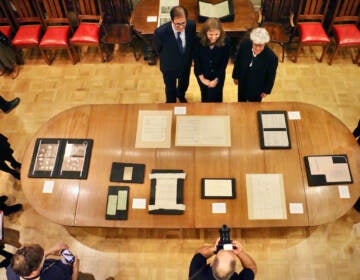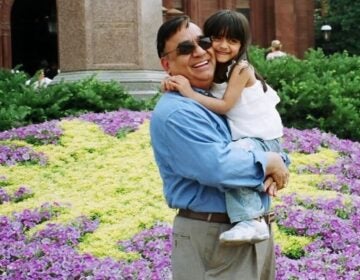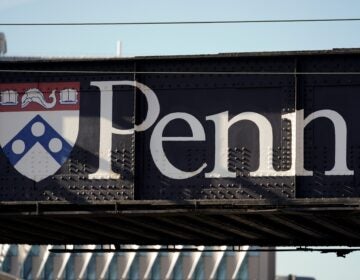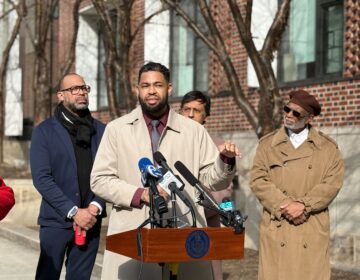William Noel, groundbreaking librarian and open data advocate, has died
The Philadelphia native was honored at the White House for his advocacy of unrestricted digital information access.
Listen 1:04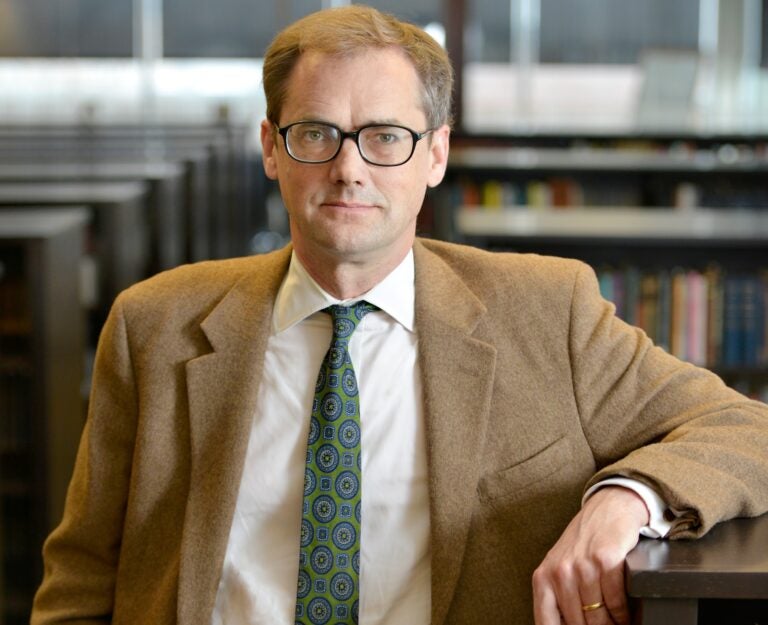
William Noel (Courtesy of Penn Libraries)
From Philly and the Pa. suburbs to South Jersey and Delaware, what would you like WHYY News to cover? Let us know!
A Philadelphia librarian and international champion of open data and information accessibility has died.
Dr. William Noel, 58, was struck by a van while visiting Edinburgh, Scotland on April 10. He died from his injuries on Monday.
Noel, who grew up in England, was an authority on medieval manuscripts. But that only scratches the surface of his interests. He was a leading figure among institutional librarians to put massive amounts of information, imagery and data online, and make the knowledge available to the public for free.
He spent much of his career at the University of Pennsylvania Libraries, where he developed OPenn, an online portal that collected, digitized and made available collections from departments across the campus. Before that, Noel had been the longtime curator of rare books at Walters Art Museum in Baltimore. Most recently, in 2020, he became an associate librarian for Special Collections at Princeton University.
Noel is perhaps best known for his leadership role in the Archimedes Palimpsest Project, an international collaboration among historians, physicists, mathematicians and conservators to develop scanning technology that would reveal the only extant original text by the ancient Greek mathematician. Archimedes’ writing on parchment had been erased and copied over as a Byzantine prayer book in the 13th century.
It took a lot of patience, collaborative thinking and the use of an atomic particle accelerator at Stanford University to bring back Archimedes’ handwriting on the page, which was subsequently made available online.
The project was the subject of Noel’s TED Talk in 2012, about the enormous effort it took to reveal the handwriting of Archimedes and the decision to release it with no copyright restrictions.
“The thing to do with books, if you want to ensure their long-term utility, is to hide them away in closets and let very few people look at them,” Noel said in his TED Talk. “The thing to do with data, if you want it to survive, is to let it out and have everyone have it with as little control on that data as possible.”
“Institutions can learn from this,” he continued. “Institutions at the moment confine their data with copyright restrictions.”
A year after that TED Talk, the Obama administration honored Noel as a “Champion of Change” for his commitment to open science.
Although Noel’s vision of freely accessible material could suggest an undermining of institutional protections over their holdings, he thrived in institutional settings.
A former colleague at Penn Libraries, Mitch Fraas, said Noel rallied every major library in Philadelphia to agree to digitize all of medieval illuminated manuscripts in their collections and aggregate them on the OPenn portal.
“With a couple conservation exceptions, every medieval manuscript held at the Free Library, the Philadelphia Museum of Art, Haverford, Swarthmore — you name it — is up on OPenn,” Fraas said. “Getting all those institutions to agree to a Penn-hosted project took a lot of charisma, and it was impossible to refuse when he laid out this vision of, ‘Why wouldn’t you want to cooperate and do this?’”
According to reporting by the BBC, the incident that caused Noel’s death is still under investigation.
WHYY is your source for fact-based, in-depth journalism and information. As a nonprofit organization, we rely on financial support from readers like you. Please give today.


